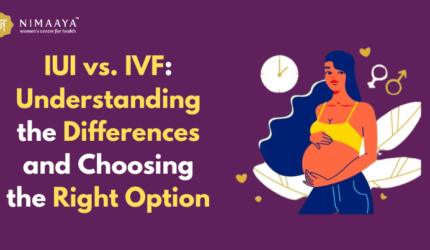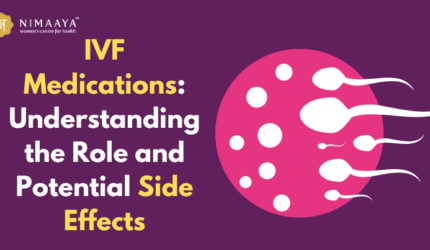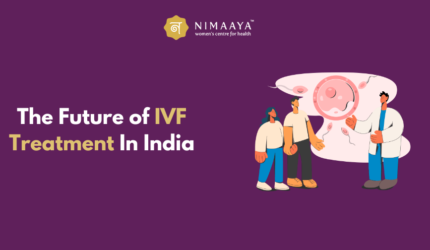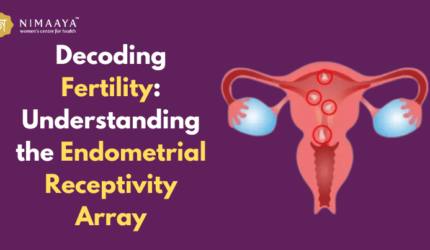Stem Cells In Vitro Fertilization (IVF) is a revolutionary reproductive medicine innovation transforming fertility treatment. This groundbreaking approach combines stem cells’ regenerative power with well-established IVF techniques to overcome various infertility challenges. This comprehensive blog delves into the potential benefits, success rates, and the latest research on Stem Cell IVF. Join us as we explore how this promising technology offers hope to countless individuals and couples striving to start or expand their families.
Stem Cells and IVF Unite
In recent years, the integration of stem cells into the realm of IVF has ignited excitement among researchers and fertility specialists. Stem cells, known for their remarkable regenerative properties, uniquely differentiate into various cell types found in the human body. By harnessing this regenerative potential, scientists are exploring new possibilities to enhance IVF procedures and overcome infertility hurdles. Using stem cells to augment fertility treatment holds immense promise and can potentially revolutionize how we approach assisted reproduction.
Understanding the Benefits of Stem Cell IVF
Stem Cell IVF presents a range of potential benefits for individuals and couples facing fertility challenges. One of the primary advantages lies in the ability of stem cells to stimulate tissue repair and regeneration within the reproductive system. This regenerative process can optimize the chances of successful embryo implantation and pregnancy. Additionally, Stem Cell IVF may address certain underlying health conditions that contribute to infertility, such as endometriosis or uterine abnormalities, thereby increasing the overall efficacy of the fertility treatment.
Also Read: The Complete IVF Guide: Process, Success Rates & Key Considerations
Evaluating Stem Cell IVF Success Rates
As Stem Cell IVF gains momentum, researchers are diligently studying its success rates. While the technology is still early, preliminary studies show promising outcomes. Initial data suggests that integrating stem cells into the IVF process may improve embryo quality and increase the likelihood of a successful pregnancy. However, it’s essential to recognize that further research and clinical trials are necessary to establish more concrete success rates. The ongoing investigations into this area offer hope for a future where Stem Cell IVF becomes a viable option for fertility treatment.
The Role of Stem Cell Therapy in Infertility Treatment
Stem Cell therapy has demonstrated its potential in treating various medical conditions, and its application in infertility treatment is no exception. Scientists are investigating how stem cells can promote tissue repair and regeneration in the reproductive organs, potentially addressing structural abnormalities and hormonal imbalances contributing to infertility. While still an evolving field, the prospect of Stem Cell therapy for infertility holds significant promise for hopeful parents worldwide. This cutting-edge approach offers hope to individuals who previously considered themselves without viable fertility options.
Advancements in Stem Cell Research for IVF
The rapid advancements in stem cell research have opened new doors for fertility treatment possibilities. Researchers are exploring different types of stem cells, such as embryonic, adult, and induced pluripotent stem cells, to determine which may be the most effective in augmenting the IVF process. These explorations can potentially refine and optimize Stem Cell IVF techniques, leading to higher success rates and broader accessibility. As technology progresses, the synergy between stem cells and IVF could redefine the landscape of assisted reproductive techniques, making fertility treatment more effective and accessible for many.
Ethical Considerations of Stem Cell IVF
With any revolutionary medical advancement, ethical considerations come to the forefront. Stem Cell IVF is no exception. As researchers explore the full potential of this technology, they must address ethical concerns related to the sourcing and use of stem cells in fertility treatment. Ensuring transparency, adherence to ethical guidelines, and informed consent from patients will play a crucial role in shaping the responsible integration of Stem Cell IVF into fertility clinics worldwide. Ethical practices are paramount in maintaining the integrity and credibility of this innovative approach.
Regulatory Landscape and Future Adoption
Integrating stem cells into IVF is a complex process requiring stringent regulation and monitoring. As the research progresses, regulatory bodies must establish guidelines and safety standards for implementing Stem Cell IVF in clinical settings. Understanding the regulatory landscape is essential to ensuring the widespread adoption of this technology and providing hope to individuals and couples seeking fertility solutions. Regulatory frameworks will be crucial in safeguarding patient welfare and ensuring that Stem Cell IVF is a safe and viable treatment option.
Real-Life Success Stories with Stem Cell IVF
Behind every groundbreaking medical innovation, there are stories of hope and triumph. Stem Cell IVF is no different. Real-life success stories of individuals and couples who have overcome infertility challenges through this pioneering technology inspire others on their journey toward parenthood. These heartwarming accounts offer a glimpse into the potential future of fertility treatment and the transformative impact that Stem Cell IVF can have on people’s lives. These personal testimonies serve as beacons of hope for those facing fertility struggles and underline the potential of this revolutionary approach.
Embracing the Future of Fertility Treatment
Stem Cell IVF represents a beacon of hope for those facing fertility struggles. As research and technology continue to evolve, the future of fertility treatment looks increasingly promising. With ongoing advancements, ethical considerations, and regulatory support, Stem Cell IVF has the potential to redefine infertility treatment and grant the gift of parenthood to countless hopeful hearts worldwide. As we embrace this future, we acknowledge that Stem Cell IVF is not just a scientific advancement but a profound expression of hope for individuals and couples on their journey to starting or expanding their families.
Conclusion
In conclusion, Stem Cell IVF stands at the forefront of revolutionary fertility treatment options. Its unique ability to harness the regenerative properties of stem cells, combined with the established techniques of IVF, opens up new possibilities for overcoming infertility challenges. As the field of Stem Cell IVF progresses, we eagerly anticipate witnessing more success stories and paving the way for a future where starting or expanding a family becomes an attainable dream for all. The journey towards enhanced fertility continues, fueled by the potential of Stem Cell research in IVF. The transformative potential of Stem Cell IVF offers hope to individuals and couples, heralding a new era in the field of IVF treatment.











